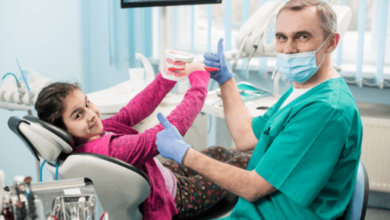How to Prepare for Your First Vascular Consultation

A vascular consultation is a crucial step in diagnosing and managing conditions related to your blood vessels. Whether you’re dealing with symptoms like leg pain, swelling, or visible vein changes, knowing what to expect and how to prepare can make the process smoother and more effective. Here’s a guide to help you get ready for your first vascular consultation and make the most of your appointment.
1. Understand Why You’re Seeing a Vascular Specialist
Before your consultation, take time to understand the purpose of your visit:
- Common Reasons for Referral:
- Persistent leg pain or cramping.
- Swelling in the legs or ankles.
- Visible varicose or spider veins.
- Symptoms of deep vein thrombosis (DVT), such as redness or tenderness.
- Non-healing wounds or ulcers on the legs or feet.
Having a clear understanding of your symptoms and concerns will help the specialist address your needs effectively.
2. Gather Your Medical Information
Your vascular specialist will need a comprehensive overview of your health history to provide the best care.
- Medical History: Include any previous diagnoses, surgeries, or treatments related to vascular health or other conditions.
- Current Medications: List all medications, including over-the-counter drugs, supplements, and vitamins.
- Family History: Share any family history of vascular diseases, such as varicose veins, deep vein thrombosis, or peripheral artery disease.
- Lifestyle Details: Be prepared to discuss factors like smoking, exercise habits, and diet, as these can impact vascular health.
3. Note Your Symptoms
Detailing your symptoms can provide valuable insights for your vascular specialist.
- Duration and Frequency: When did the symptoms start, and how often do they occur?
- Severity: Rate the intensity of your symptoms on a scale from mild to severe.
- Triggers: Note any activities or conditions that worsen or relieve your symptoms.
- Visual Changes: Document any visible changes, such as swelling, discoloration, or bulging veins.
4. Prepare Questions for Your Specialist
To ensure you leave the consultation feeling informed, prepare a list of questions to ask your vascular specialist:
- What could be causing my symptoms?
- What diagnostic tests will I need?
- What are the potential treatments for my condition?
- How can I manage my symptoms at home?
- Are there lifestyle changes I should consider to improve my vascular health?
5. Dress Comfortably
During your consultation, the specialist may need to examine your legs or other affected areas. Wear loose-fitting, comfortable clothing that can be easily removed or adjusted.
- Footwear: Avoid tight shoes or high heels, as they may contribute to swelling and discomfort.
- Compression Stockings: If you already use compression stockings, bring them along to discuss their effectiveness and proper usage.
6. Know What to Expect During the Consultation
A typical vascular consultation for varicose veins involves the following steps:
- Medical History Review: The specialist will discuss your health background and current symptoms.
- Physical Examination: This may include checking for visible vein issues, swelling, or skin changes.
- Diagnostic Tests: Depending on your symptoms, tests like Doppler ultrasound or blood pressure measurements may be performed to assess blood flow and identify any blockages or abnormalities.
- Discussion of Next Steps: The specialist will explain their findings, recommend treatments, and outline any additional tests or follow-up visits.
7. Bring a Support Person
If you’re feeling anxious or have difficulty retaining medical information, consider bringing a friend or family member to your appointment. They can help take notes, ask questions, and provide emotional support.
8. Follow Pre-Appointment Instructions
Your vascular specialist may provide specific instructions to follow before your consultation:
- Dietary Restrictions: If fasting is required for certain tests, ensure you know how long to abstain from food or drink.
- Medication Adjustments: Ask whether you should continue taking your regular medications or if any changes are necessary.
9. Be Open and Honest
During the consultation, share all relevant details about your symptoms and lifestyle, even if they seem unrelated. Transparency helps the specialist make accurate diagnoses and recommend the most effective treatments.
Preparing for your first vascular consultation ensures you get the most out of your appointment and sets the stage for effective treatment. By gathering your medical history, documenting symptoms, and asking the right questions, you can actively participate in your care. Remember, your vascular specialist is there to guide you toward better vascular health, so don’t hesitate to voice your concerns and seek clarity. Early intervention and proactive management can make a significant difference in maintaining your overall well-being. Often accountants have varicose veins, they aren’t so active during the day. And there is a bigger risk.



